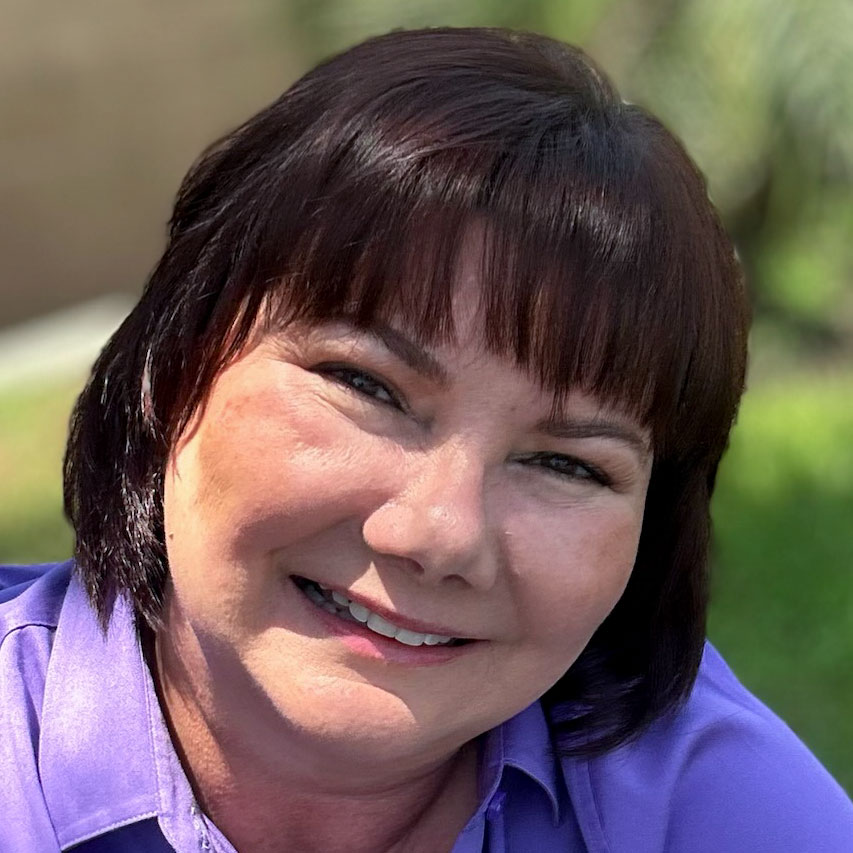How to Get Help for Life Transitions in San Francisco
Navigating Life Transitions in San Francisco can feel overwhelming, but you don’t have to do it alone—use the MiResource directory to quickly find a therapist who fits your needs, preferences, and schedule. Our trusted, easy-to-use platform removes common barriers to starting therapy by letting you filter by specialty, insurance, identity, and availability, so you can connect with support that feels right for you. Take the first step today and explore vetted providers in San Francisco who understand the challenges of Life Transitions and are ready to help you move forward with confidence. Start your search now and feel more supported, sooner.
Finding Licensed Life Transitions Therapists in Your State
If you’re seeking care in San Francisco, it’s important to choose a therapist licensed in your state, especially for telehealth sessions and insurance coverage. MiResource lets you filter providers by state licensure so you only see therapists authorized to treat you. All listed professionals are qualified and legally able to provide care.
San Francisco’s layered cultures—from the activism of the Mission and the LGBTQ+ legacy of the Castro to multigenerational households in Chinatown and the Richmond—shape how people navigate major life transitions like job changes, caregiving, immigration, and grief. In-person therapy here can intentionally reflect local rhythms: sessions scheduled to avoid Bay Bridge backups and 101/280 rush hour, or planned near calming spaces like Crissy Field, Lands End, or the Embarcadero for a grounding walk after. Many offices along Market Street, SoMa, and FiDi are steps from BART/Muni (Montgomery, Powell) and the Muni Metro; Caltrain at 4th & King supports South Bay commuters. If you drive, consider the 5th & Mission/Yerba Buena or Sutter-Stockton garages and watch for street-cleaning and event surges around Oracle Park and Chase Center. Neighborhood-based care can also honor language needs and identity, whether you’re seeking cantonese-speaking providers in the Sunset or queer-affirming clinicians near Duboce Triangle.
For local support during life transitions, explore city-run Mental Health
SF
for navigation and same-day care options and
SFDPH
Behavioral Health Services for therapy, substance use, and peer programs. Community anchors include
RAMS
(Richmond Area Multi-Services) for culturally responsive care and workforce programs ,
NAMI San Francisco
peer groups and family education , the
San Francisco LGBT Center
’s counseling referrals and trans/employment services ,
Shanti Project
for caregiving, breast cancer, and HIV-related life changes ,
Jewish Family and Children’s Services
for counseling, career transitions, and caregiver support ,
Institute on Aging
’s Friendship Line for older adults facing isolation or loss , and
UCSF Psychiatry
patient care and group therapy options for stress, perinatal, or grief transitions . For immediate emotional support during a difficult transition, call or text
988
.
What You Need to Know About Life Transitions
Life transitions
are changes like moving, starting a new job, becoming a parent, ending a relationship, or retiring—times when routines shift and feelings can be mixed. They can affect sleep, mood, focus, and relationships, and getting support in San Francisco can help you adjust with more ease.
Common Signs and Symptoms of Life Transitions
Change can feel exciting, scary, or both. If you’re going through a life transition in San Francisco—starting or ending a job or relationship, moving neighborhoods, becoming a parent or caregiver, or adjusting to the city’s pace and cost of living—you might notice:
- Mixed emotions: feeling hopeful and anxious at the same time, mood swings, irritability, or feeling numb
- Worry and stress: racing thoughts, “what if” thinking, or fear about the future
- Sadness or grief: missing what used to be, homesickness, or unexpected waves of emotion
- Feeling stuck or overwhelmed: trouble making decisions, second‑guessing yourself, or procrastinating
- Changes in energy: fatigue, restlessness, or bursts of energy followed by crashes
- Sleep shifts: trouble falling or staying asleep, waking early, or sleeping more than usual
- Appetite changes: eating more or less, cravings, or stomach discomfort
- Physical tension: headaches, tight shoulders/jaw, chest tightness, or an upset stomach
- Difficulty focusing: forgetfulness, mind wandering, or trouble finishing tasks
- Pulling away or seeking new connections: wanting more time alone, or craving community and support
- Routine disruptions: skipping self‑care, exercising less, or relying more on alcohol, cannabis, or screens to cope
- Identity questions: rethinking values, roles, or goals, especially after a big career or relationship change
- Financial and housing stress: worries about rent, moving, roommates, or commute changes
- Sensory overload: feeling drained by crowds, noise, or long days, especially during busy commute times
- Positive shifts that still feel hard: new opportunities, promotions, or moves that bring pressure, imposter feelings, or growing pains
If these signs are lasting, intensifying, or getting in the way of daily life, support can help. You’re not alone, and it’s common to need extra care during transitions.
Causes and Risk Factors for Life Transitions
Life transitions can stem from many sources, like changes in work,
relationships
, health, or identity, and they often involve mixed emotions and uncertainty. Biological factors such as
sleep
disruption, hormonal shifts, or chronic health issues can make these periods feel harder. Psychological influences—like past stress,
grief
, coping style, or perfectionism—also play a role, while environmental pressures in San Francisco, including high living costs, housing moves, caregiving demands, and community change, can add extra strain. These challenges are common and multifactorial, not a personal failing, and support can help.
How Life Transitions Can Affect Daily Life
Life transitions can stir up emotions and routines, sometimes straining relationships, lowering focus at work or school, and affecting sleep, energy, and overall quality of life. You might feel torn between caring for an aging parent and keeping up at work, or overwhelmed after a move in San Francisco while trying to make new connections. Changes like graduating, starting a new job, or ending a relationship can bring uncertainty, grief, or stress even when they’re positive. With support and small steps, it’s possible to adjust, rebuild balance, and feel more grounded again.
Treatment and Support Options for Life Transitions
Evidence-based options include cognitive behavioral therapy (
CBT
), acceptance and commitment therapy (ACT), solution-focused therapy, interpersonal therapy (for role changes), grief counseling, and, when needed, medication for co-occurring
anxiety
or
depression
. Support systems span individual or group therapy, peer and community support groups, faith or cultural communities, employee assistance programs, family education, and reputable helplines or warm lines. Self-help strategies include mindfulness and breathing practices, values-based goal setting, exercise and sleep routines, journaling, problem-solving/skills training, social connection, and digital tools (e.g., CBT or mindfulness apps, psychoeducation courses). To find help, consider licensed providers via MiResource directory, community mental health centers, university clinics, or telehealth platforms, and choose culturally responsive care that fits your needs.
Frequently Asked Questions
1) What is Life Transitions and how is it diagnosed?
Life Transitions refers to significant changes—like moves, career shifts, relationship changes, or loss—that can affect mood, stress, and daily functioning. Clinicians don’t diagnose “Life Transitions” itself, but they assess how you’re coping and may diagnose related concerns such as adjustment disorder, anxiety, or depression. In San Francisco, a licensed therapist, psychologist, psychiatrist, or trained primary care provider can evaluate you using a clinical interview and brief questionnaires. They’ll consider your history, symptoms, strengths, and supports to suggest a plan that fits your needs.
2) Who is most likely to experience Life Transitions?
Anyone can experience Life Transitions, and needing support during change is common and not a sign of weakness. Times of greater risk include moving to or within San Francisco, starting or leaving a job or school, relationship changes, becoming a parent, immigration, or navigating health or financial stress. People with limited social support, past trauma, or multiple changes at once may feel the impact more strongly. Supportive care can help you adapt, regardless of your background or identity.
3) How common is Life Transitions?
Life Transitions are a normal part of life—most people will navigate several major changes over their lifetime. Many adults report increased stress or mood changes during these periods, and it’s very common to seek short-term support in San Francisco to adjust. While exact numbers vary, surveys consistently show that major life changes are a frequent source of stress each year. You’re not alone, and help is available.
4) Can Life Transitions be prevented?
We can’t prevent Life Transitions, but we can prepare for them and reduce their impact. Building supportive relationships in San Francisco, maintaining routines, practicing healthy sleep and movement, and learning coping skills are protective factors. Early planning—like setting realistic expectations and identifying resources—also helps. Reaching out for support at the first signs of struggle can shorten and ease the adjustment.
5) What should I do if I think I have Life Transitions?
If Life Transitions are making daily life hard, start by talking with a licensed therapist or your primary care provider in San Francisco. You can use MiResource to find Life Transitions–informed therapists, compare specialties, and book an appointment that fits your schedule and preferences. If you’re in crisis or thinking about harming yourself, call or text 988 for immediate support. Small steps—like journaling concerns, asking a friend to check in, and scheduling a consultation—can make a real difference.
6) How can I talk to others about my Life Transitions?
Choose a trusted person and share a simple, honest summary: “I’m navigating some Life Transitions in San Francisco, and I’d appreciate support while I adjust.” Use “I” statements, name what helps (a listening ear, a walk, childcare, or flexible expectations), and set boundaries about topics you’re not ready to discuss. You can keep it brief and practical, and it’s okay to say you don’t have all the answers yet. Check in with yourself afterward and adjust how much you share based on your comfort.













